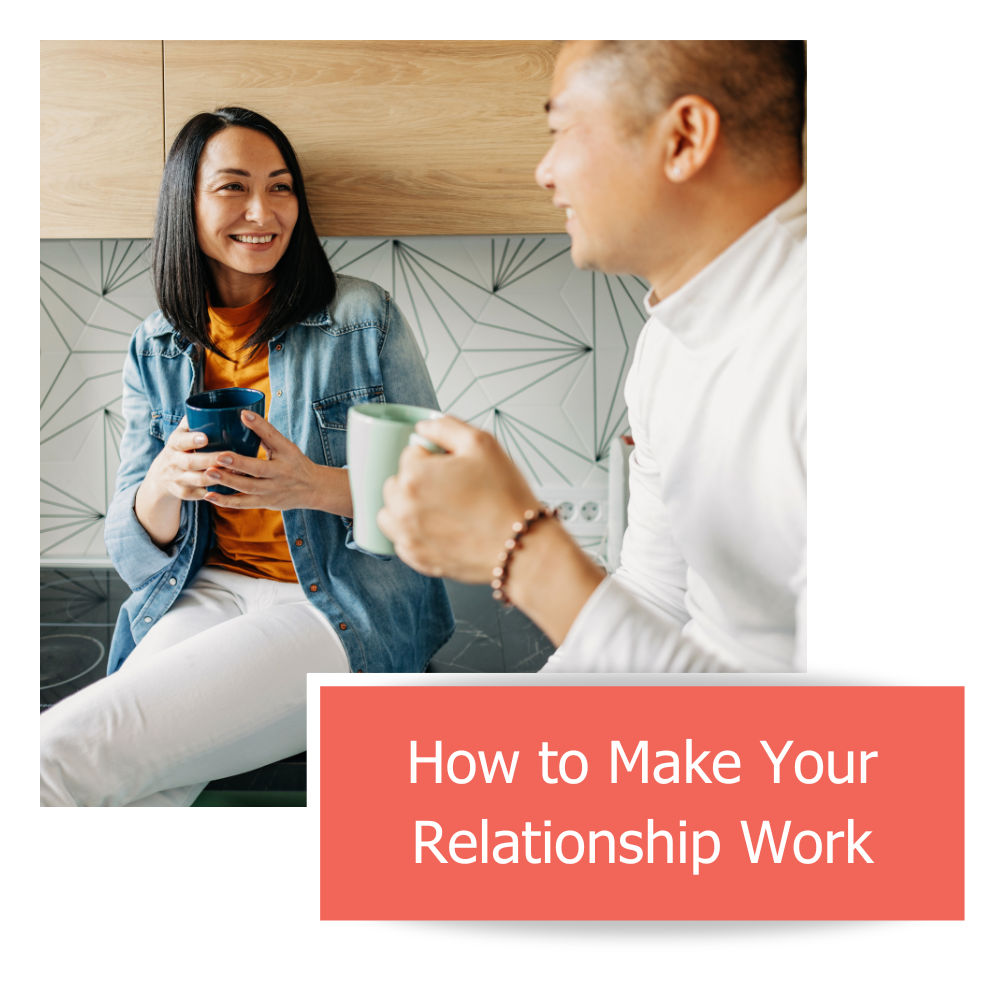Has this happened to you? You’re enjoying takeout from your favorite place and remark, “This restaurant food is good, isn’t it?” Your partner replies, “You have never appreciated my cooking.” Or you express your opinion like, “We need a vacation. It’s been a long time since we went out together” and it is met with “What should I do to make you happy? Do you want me to quit my job?” You feel perplexed and try to defend yourself, but it only seems to escalate the conflict.
Sometimes you wonder what you said wrong? Was it your words or context? Something seems to be upsetting your partner and you don’t know what. Over time, as talking does not lead anywhere other than conflict, you give up. You focus instead on something else, be it work, house chores, or scrolling social media. Though you crave your partner’s companionship, it seems like it is an impossible feat to achieve.
What happened?
What possibly happened here is your partner has built up resentments and is stuck in negative sentiment override. Couple interactions are influenced by sentiment overrides as theorized by Weiss. In essence, the residual emotions from every interaction (could be words, gestures, facial expression, or body language) accumulate over time, becoming a new dimension of the relationship that derails the objectivity of the current interactions. Your partner silently harbors the emotions of feeling unimportant, unwanted, or uncared for and now perceives everything said with a negative filter. This might come as a shock to many partners as they do not seem to recall anything that they said or done to cause their partner’s underlying wrath.
This resentment, however, happened the times you were late when they eagerly waited for you; you unintentionally exposed their personal information to friends; or, you ignored things and activities that they see as a priority again and again. Your partner may have voiced their concern gently and perhaps you brushed it away as you had your reasons. As time went on, they retreated, feeling their concern is futile, which probably went unchecked as well. Now your partner is resentful and bitter and displays criticism and contempt for everything you say. If the situation persists for long, as multiple attempts to build a normal conversation go nowhere, you may also eventually wind up in negative sentiment override. A vicious cycle results, where any attempt to converse seems a mountainous task.
Research on Sentiment Override
Dr. John Gottman and his team studied 96 newlywed couples and observed this phenomenon where observers coded discussion differently from that of partners in a conflict situation. Partners perceived the interactions negatively though it did not appear negative to the researchers.
However, in some couples, the interaction went another way, where neutral and low-intensity negative messages were interpreted positively. In the above two examples, the partner would have responded positively like “I know you love this restaurant” or “I miss our vacations too, so we should plan one soon.” Here there was a positive sentiment override where the partner attended to the neutral comment positively.
Negative sentiment override was observed more in distressed couples, while positive sentiment override was predominant in non-distressed couples. The distressed partners perceived the messages negatively even when their partners shared neutral or positive behaviors. These patterns along with other destructive patterns like The Four Horsemen of Apocalypse (Criticism, Defensiveness, Contempt, and Stonewalling) and Emotional Disengagement (as observed in other longitudinal studies by Dr. Gottman) continued to keep the couples in the status quo of distress.
How do you break this pattern?
Here are some ways as suggested by Dr. John and Julie Gottman to get out of this cycle.
Communicate to Listen. Your partner has emotional injuries. “You did not stand up for me with your parents!” “You weren’t there for me when I was sick!” “First year of our marriage you belittled me in front of my parents!” Now, these hurts from the past become a perceptual filter through which your partner evaluates you. Talk about these concerns until your partner feels heard and healed.
Keep the Four Horsemen at bay. The Four Horsemen of Apocalypse are destructive to any relationship. Though these patterns are used as defense mechanisms many times, the words said leave back a deep scar. Rather than the root issues (e.g., feelings of unheard, rejection, loneliness, etc.) that need healing, the words of defense take the center stage in the conflict. The sore root feelings remain unaddressed, while the couples feel lost in endless bouts of arguments. Share these deeper feelings and needs instead of unleashing the Horsemen.
Accept Responsibility. Focus on the vulnerabilities rather than the logic of the argument. There is no right or wrong in the relationship. It is only the feelings that matter. Hear and understand. Accept responsibility for the part played by you that hurt your partner. Heal their wounds with acceptance and empathy.
Self-Soothe. Take a break for 30 minutes when flooded until you feel calmer. Words said in stress only cause escalation. Even if you walk away to avoid stressing situation, it can be misread as left stranded. Keep your partner informed that you are stressed and need a break and let them know when again you can continue the discussion to give it closure. Let your partner know about your vulnerability so that they can understand it is as important to you as to them. Also, set a time to reconnect.
Final Thought
It can be overwhelming to break through the negative sentiment override and restore a functional conversation with your partner. Let a mental health professional help you.
References
Hawkins, M. W., Carrere, S., & Gottman, J. M. (2002). Marital Sentiment Override: Does It Influence Couples’ Perceptions? Journal of Marriage and Family, 64(1), 193–201. https://doi.org/0.1111/j.1741-3737.2002.00193.x
Gottman, J. M. (2011). The science of trust: Emotional attunement for couples. W. W. Norton.
Gottman, J. M., & Krokoff, L. J. (1989). Marital interaction and satisfaction: A longitudinal view. Journal of Consulting and Clinical Psychology, 57(1), 47–52. https://doi.org/10.1037/0022-006X.57.1.47
Gottman, J. M., & Levenson, R. W. (1999). What predicts change in marital interaction over time? A study of alternative models. Family Process, 38(2), 143–158. https://doi.org/10.1111/J.1545-5300.1999.00143.X
National Domestic Violence Hotline
If you’re in an abusive relationship, you are not alone. Call the National Domestic Violence Hotline at 1−800−799−7233 or TTY 1−800−787−3224. You can also visit the website.








